Last week I had the honor of attending National Geographic’s first-ever Explorers Festival. It was many things: It was a gathering of explorers from all disciplines and corners of the globe; it was my introduction to the NatGeo “family;” it was an excuse for NatGeo to roll out the 'yellow carpet' for James Cameron, Sylvia Earle, Neil DeGrasse Tyson, Bob Ballard, and other explorer-celebrities.
As a 2017 Emerging Explorer, I gave a 10-minute talk about my work and dreams and then contributed to a panel discussion on “Transformative Technology;” both are online here.
As a 2017 Emerging Explorer, I gave a 10-minute talk about my work and dreams and then contributed to a panel discussion on “Transformative Technology;” both are online here.
The week was a gear-shifting process for me. For the past several months I’ve been up to my ears in my PhD thesis. This week forced me to take a few steps back and think big-picture, about major goals and priorities in terms of ocean technology development. It also forced me to reflect on my personal story --- the twists of fate that pushed me to where I am now.
NatGeo focuses on human elements of any story; I believe this is one reason why it effectively engages across disciplines. Explorers are encouraged not just to talk about their work, as they might at an academic or technical conference, but also to speak of their motivations – how and why they got to their unique position. Usually these stories take us back to childhood, but not all the time – sometimes the story starts later in life. Distilling one’s life into a story is a difficult task if you overthink it. How can one figure out which moments of the past millions and millions of moments to cut and which to mention? How do our brains remove the signal from the noise? Only in hindsight have I identified some of the more transformative moments. The storytellers at NatGeo helped me bring out the bits of my story that linked my path in ways I hadn’t considered before. For that I’m very thankful to the NatGeo community.
| During the Festival, Fabien Cousteau’s Mission 31 got a shout-out not just in my talk, but also in educator Joe Grabowski’s talk. Joe founded Exploring by the Seat of Your Pants (EBTSOYP), an awesome program that connects classrooms with explorers for virtual field trips. If your classroom is studying the ocean, EBTSOYP can connect your class for 30+ minutes with someone or a team doing ocean work that as their full-time job(s). I believe exposing young students to human stories related to their studies is essential to engagement. I remember in middle school wanting to be a dolphin trainer, orthodontist, or teacher because those were the professions that I understood---I never heard of an ocean engineer until university! I can’t wait to connect students with the Pisces VI submarine project through Joe’s program. |
| One of the moments that brought happy tears to my eyes last week was watching Wasfia’s story. I was introduced to her a few days before at a happy hour, when someone whispered to me “she’s climbed Everest…” but only after watching her film did I realize that’s the tinniest part of her story. A Bangladeshi orphan, she learned new definitions of home. On summitting the highest peaks of all seven continents, she said "in my eye, climbing is more of a surrender rather than conquering; if anything nature conquers you." | Watch Wasfia's inspirational story here^ |
WHAT’S NEXT.
| Yesterday (Monday June 26, 2017) was the first day of my 8-week stint with NASA’s Frontier Development Lab. In September I’ll return full attention to my doctoral thesis, which I plan to submit in December. In my spare time I’m thinking about the science addenda for the Pisces VI submarine, which I’ll visit this August with fellow scientist Anni Djurhuus. Scott is currently on a cruise with the Alvin submarine in Costa Rica. At the Festival, I learned and experienced the word “overinspired.” I feel extremely motivated to get back to work, even if that means getting back to the grind. I’m looking forward to learning cutting edge machine learning applications this summer with NASA colleagues and will devote my whole focus to that. Down the line, I look forward to collaborations with fellow explorers, whether that be on ocean research expeditions, technology development, or yet unplanned adventures. |
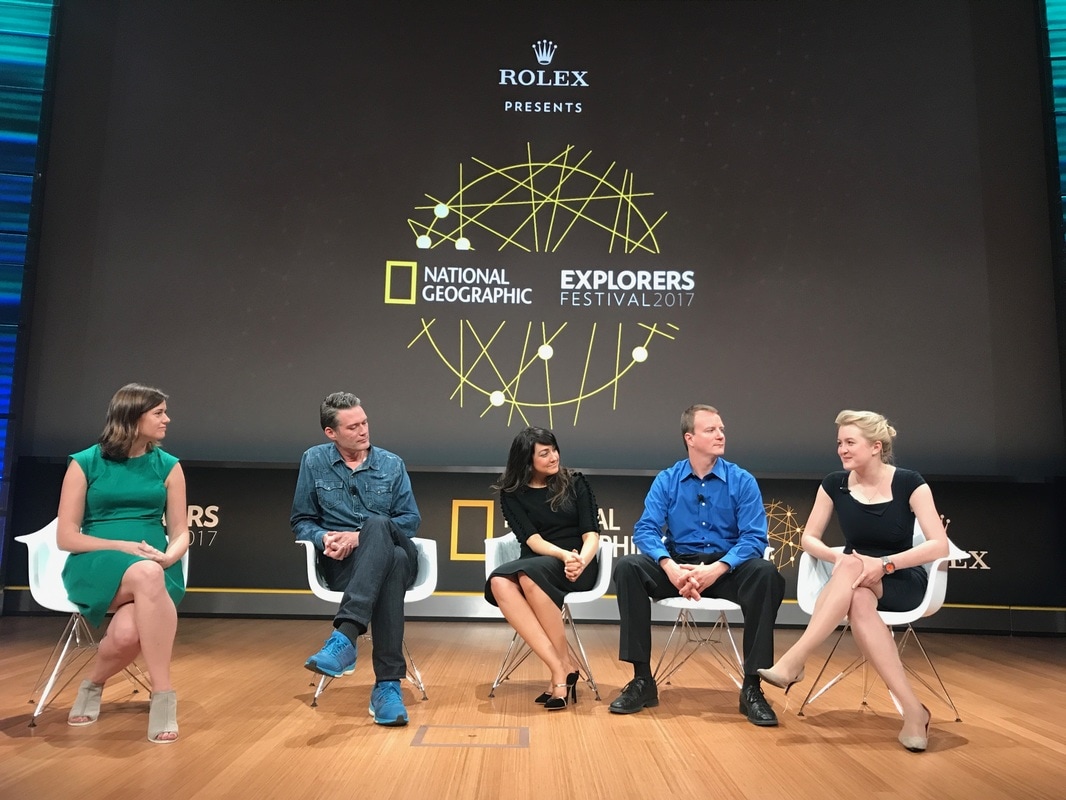
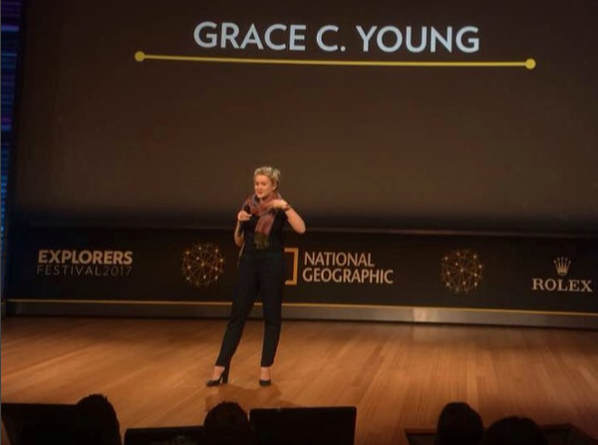
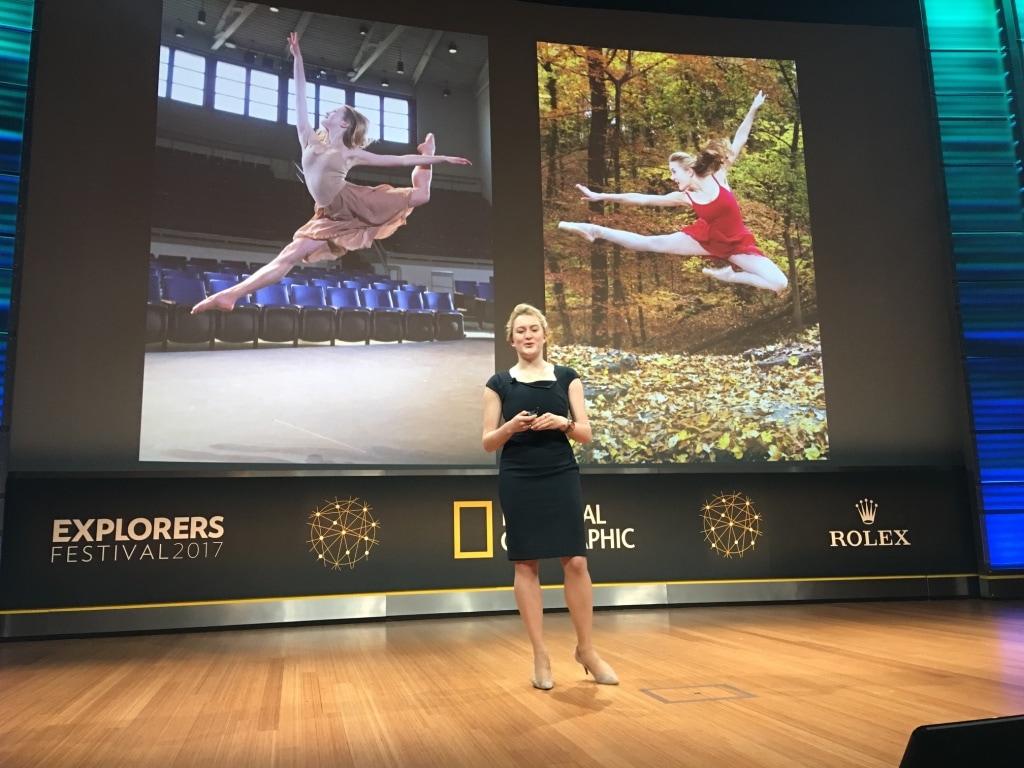
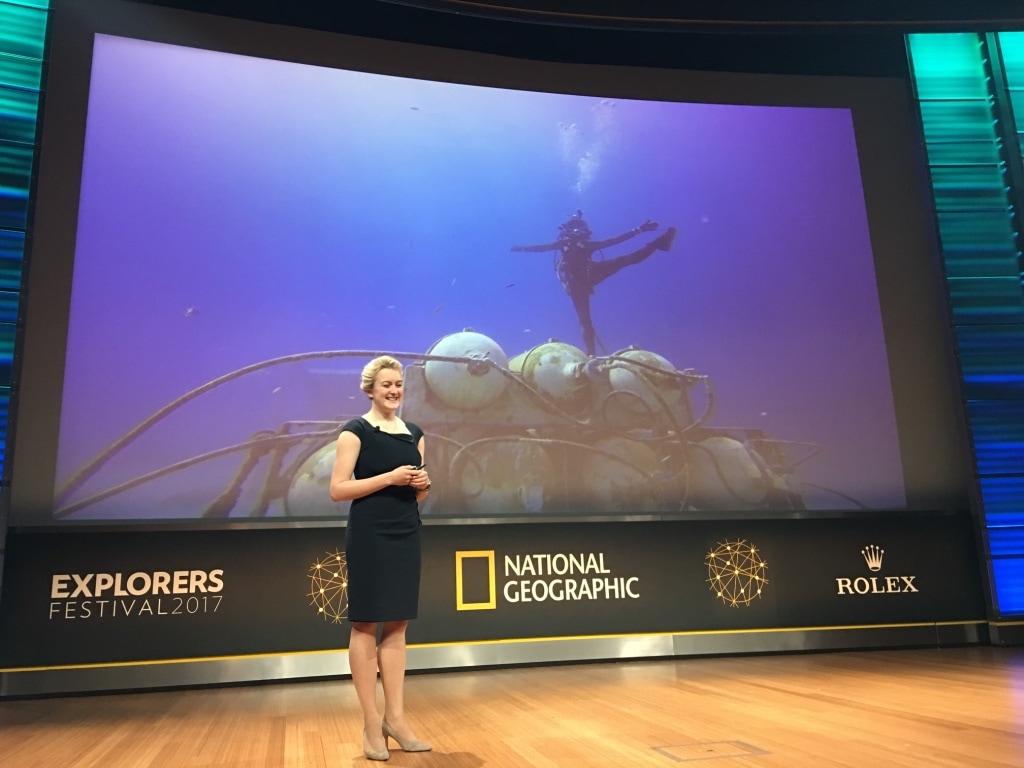
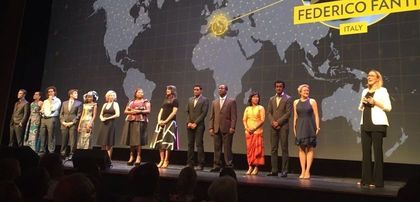
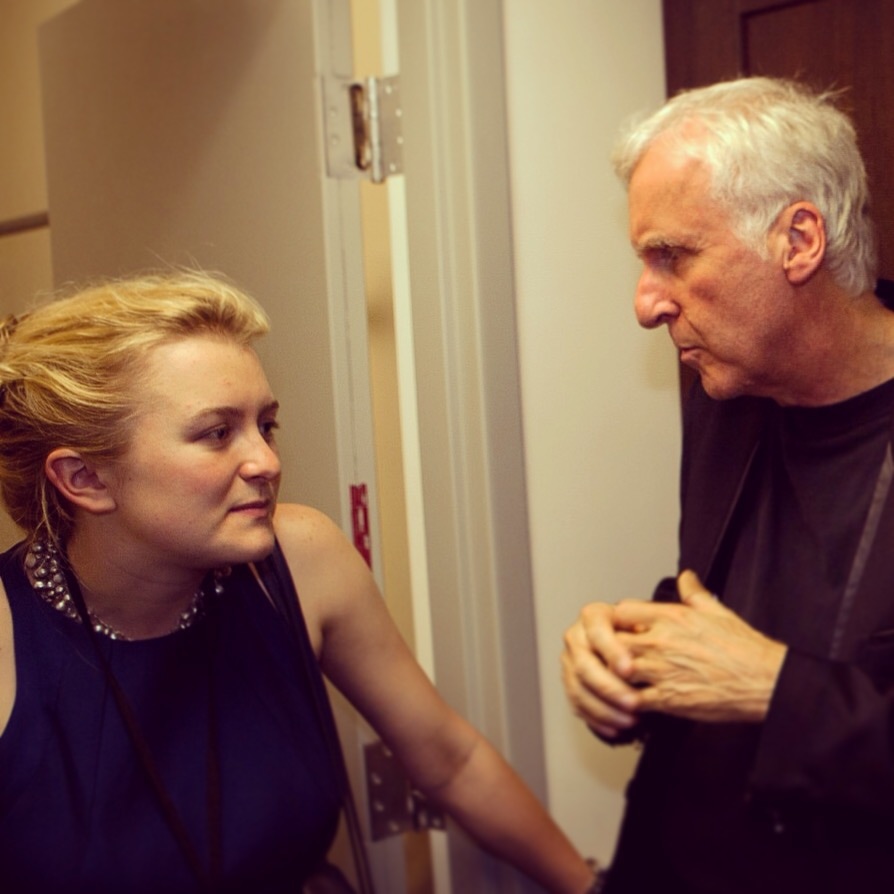
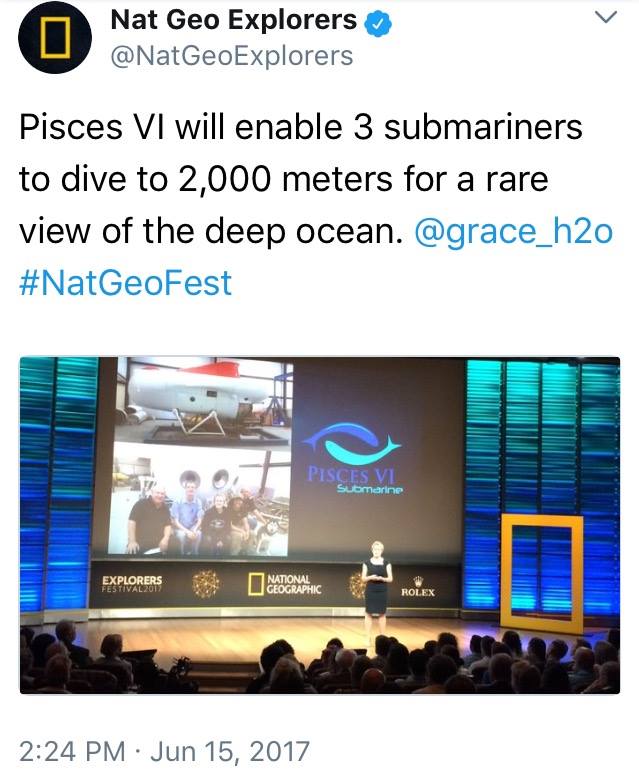
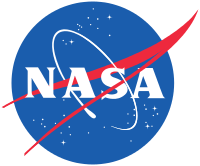
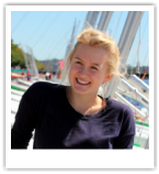
 RSS Feed
RSS Feed
